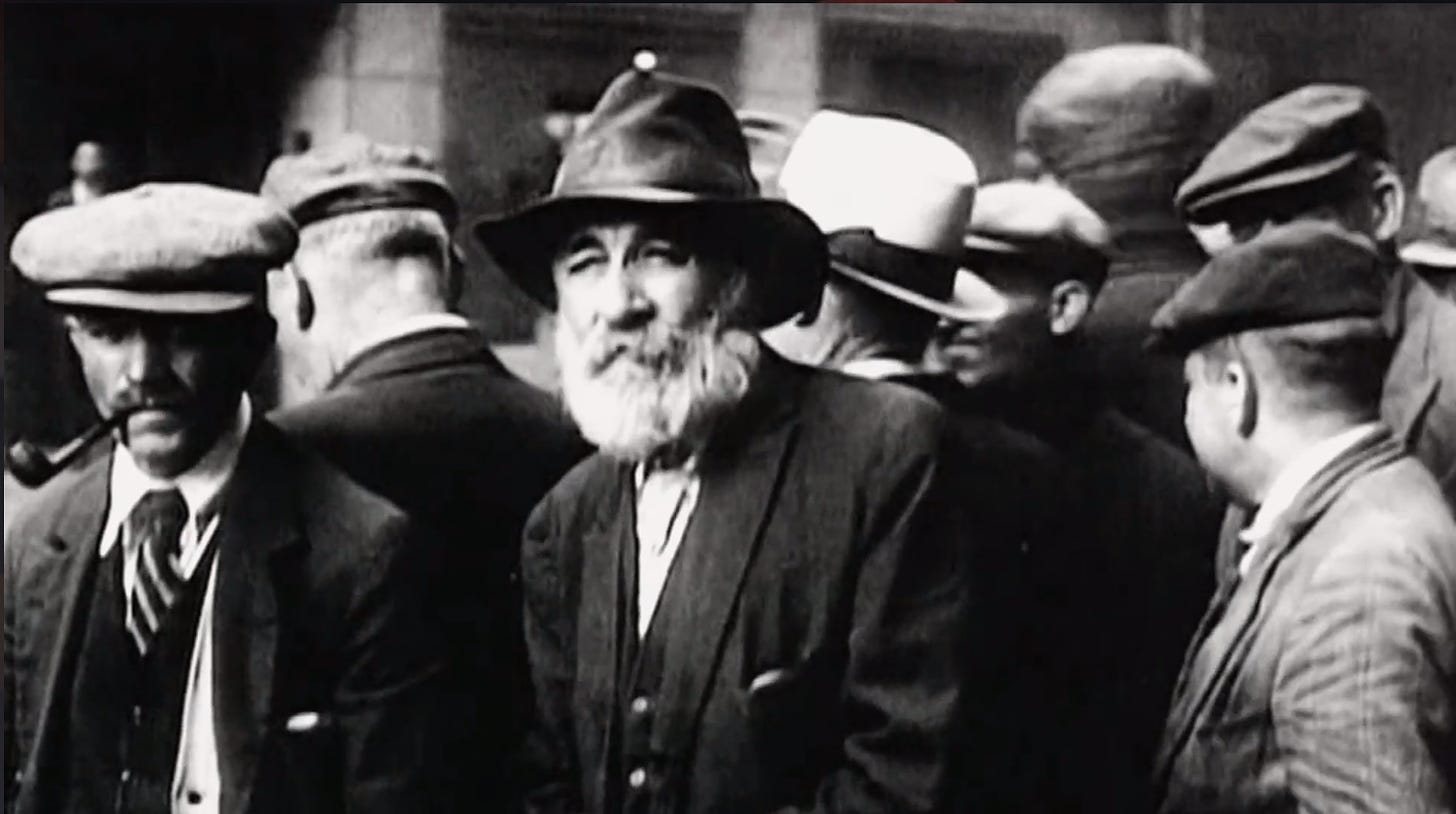When the World Breaks (2010)
The Great Depression, at least the one that took place during the 1930s, is now almost out of living memory. My grandparents were there, of course, and while they rode it out more or less stoically, as farmers they were in an especially bad spot because they couldn’t farm enough to make a profit. Like millions of others, they all but lived on potatoes and what crops they could grow locally. My great grandmother’s fifth and final husband once told my mom that during the Depression pork was the only kind of meat they could afford.
When the World Breaks tells a few of the millions of similar stories of desperation and innovation that the Great Depression ultimately spawned, punctuated by interviews with eyewitnesses such as Buzz Aldrin, Gabriel Navarro, Hugh Downing, Ray Bradbury, and Phyllis Diller. It’s a very personal film for those who made it and for everyone who sees it because every American has at least some connection to the Great Depression.
The first thing that jumped out at me was the on-the-nose familiarity. One interviewee, Paul Dooshey, mentioned how his family lived off their expansive kitchen garden. Chickens weren’t often killed because the family needed the eggs, and farmers typically shared their extra milk or other foods between them. This was what my family on both sides did as well, as did hundreds of other rural communities.
Dooshey and another gentleman, engineer James Smith, echoed almost word for word something my paternal grandmother told me years ago: You don’t feel poor when everyone else is poor, too.
Of course, there are many stories of the worst happening. Jerry Stiller related that a candy store owner in his Brooklyn neighborhood hanged himself when things got really bad. Men felt useless and guilty over having no work. Some were passive. Others marched in support of their beleagured neighbors, which, in the case of one march in Chicago, resulted in three people being shot and another larger and more multicultural march taking place in response.
When the World Breaks brings out the positive sides of the Depression, and there were positives. People worked together, made connections, and figured out how to prosper in spite of very real fear that the United States would collapse. More than one of the people interviewed lamented the lack of real connection we have today as a society.
People found ways to escape, often through music, film, and radio, much of which brought satisfying catharsis and vicarity to a public who were so often used to giving up most luxuries.
The Depression also inspired new ideas. Jack LaLanne opened his first gym in Oakland, California in 1936, and it was revolutionary at the time because it taught people to work with their bodies instead of against them.
Breaks presents a pretty balanced view of the political and social nuance surrounding the New Deal. Some of the younger participants in Breaks express surprise that people weren’t pushing the government to help them, but others affirm that there were those who really had to be sold on the idea of the New Deal.
In the long term the New Deal may not have been as beneficial as it’s made out to be, even if some of its points were and still are sound. Some economists have since speculated that the Depression would have resolved itself sooner without it.
In the end, the only real curtain on the Great Depression was the Second World War. People may not have had much during the nineteen-thirties, but a lot of people had solidarity with their neighbors, and for many in the end, survival. What with our current (and exceedingly needless) situation today, When the World Breaks is a bracing and encouraging documentary of Americans reawakening to reality and freedom.
When the World Breaks is currently available on Tubi and Freevee (via Amazon Prime). Rating: TV-PG.
My grade: A-
Principal cast: Buzz Aldrin, Ray Bradbury, Phyllis Diller, Andrew Alozie, Kaine Alozie, Willie Barrow, Jerry Beck, Timuel Black, Hugh Downs, Heather Boushey, Paul Dooshey, Heather Becker, Carla Laemmle, Jack LaLanne, Art Linkletter, Mickey Rooney, Jerry Stiller, Tyrus Wong, Janet Klein
Directed by Hans Fjellestad.
Written by Hans Fjellestad, Joe Mundo, and Jason Stallee.




